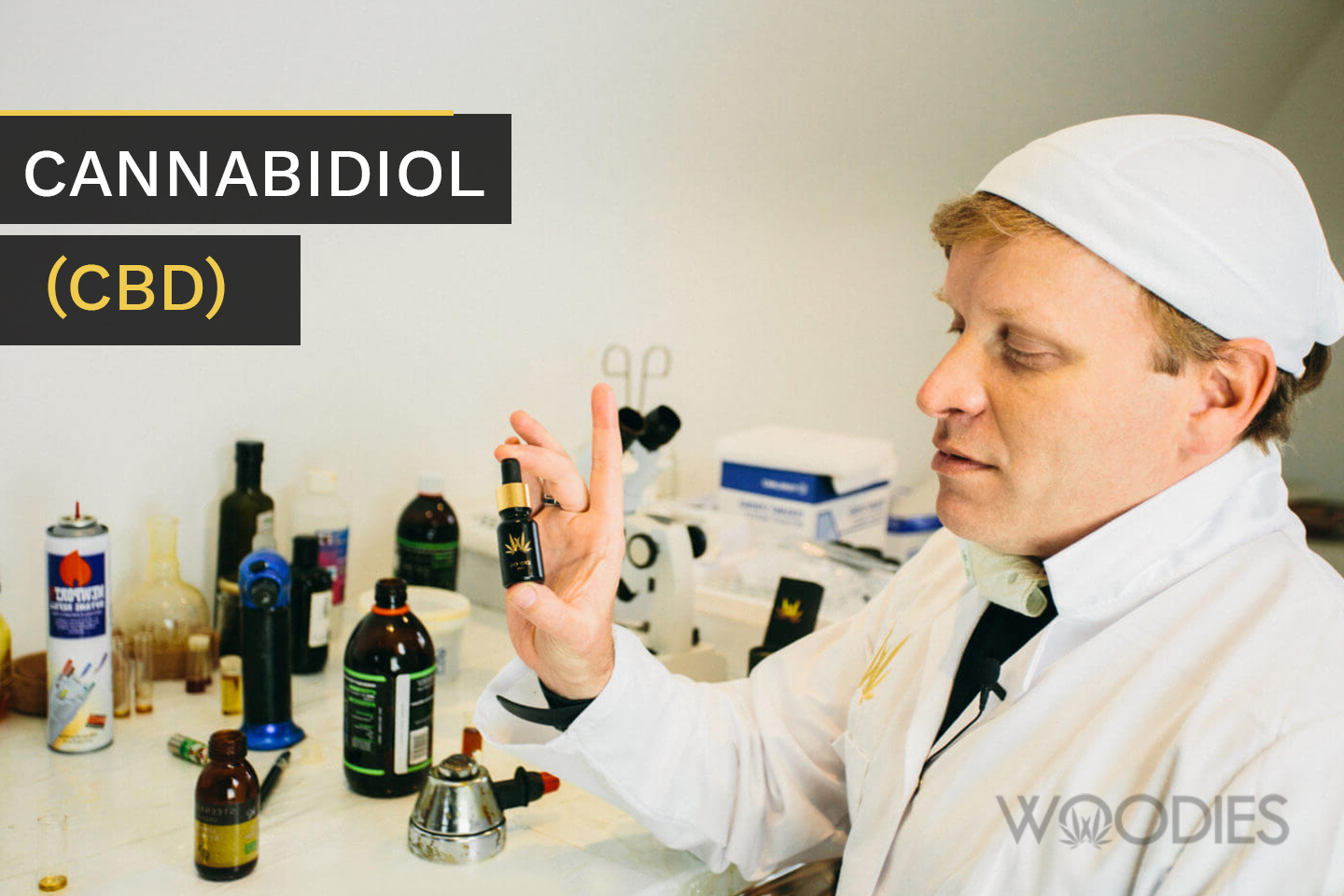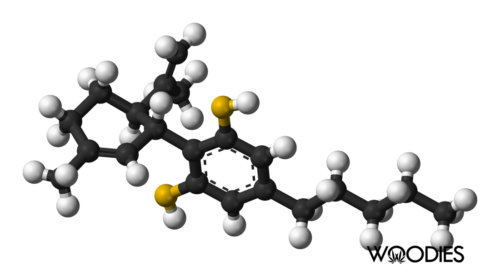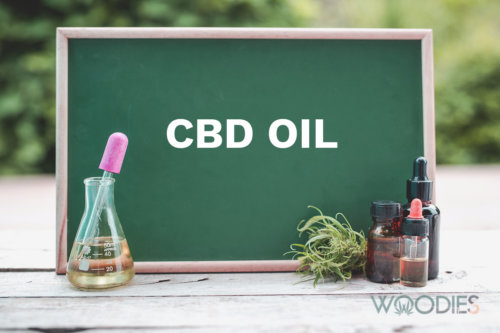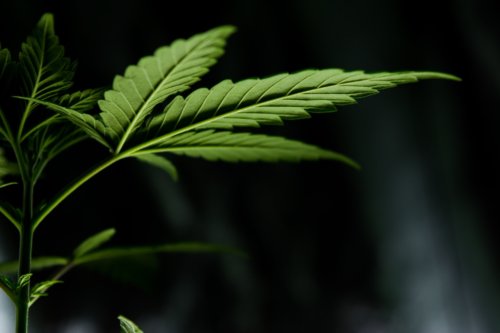
Cannabidiol (CBD)
As I’m sure you know, I’ve made it my business to know about cannabidiol, or CBD as it's more commonly known, and I get lots of people messaging me these days, asking for my advice on how to treat various ailments with CBD. I don’t claim to be a medically qualified doctor and I can’t and won’t prescribe or make promises about whether CBD will work for them.
But what I can do is share with them what I’ve learned about CBD - and pass on what other people have said works for them - then it’s up to each person to make their own decisions (after consulting with their own GP, of course). So I think it’s about time I give you all my low-down on CBD.

If you already take CBD oil you’re certainly not alone. It’s the rising star of the wellness industry with around 300,000 users in the U.K. and an ever-increasing and diverse range of products continues to flood the market. In fact, CBD sales are now worth an estimated £300 million annually, a figure expected to rise to around £1 billion by 2025 (1). But what is CBD and should we really believe the hype?
What is CBD?
CBD is one of around 100 cannabinoids in the Cannabis sativa plant and accounts for up to 40% of its make up. Research has shown that cannabinoids interact with the human Endocannabinoid system (ECS), a complex signalling system that functions to achieve homeostasis - or, a healthy balance - in our body by influencing many physiological processes, such as those relating to pain, inflammation, immune response, digestion and mood.
An example of this is if we have a fever, the ECS sends messages to certain parts of our body telling them to take action to fight it (2). This helps to restore balance and make us feel better. Although the ECS has its own cannabinoids (called endocannabinoids) to help it function, cannabinoids such as CBD, which are actually phytocannabinoids, can help out too (3).
CBD & ECS
Now because the ECS was only identified in the early 1990s, we still have so much more to learn, but research carried out so far has found that the way in which CBD interacts with the ECS means it has the potential help to relieve pain, fight inflammation, combat oxidative damage, reduce stress, enhance blood flow and protect brain health and function. And in this way, it can be used to help treat a wide range of conditions including chronic pain, arthritis, MS, diabetes, depression, anxiety disorders, PTSD, addiction, menopausal symptoms, cancer and the effects of chemotherapy, schizophrenia, Alzheimer’s, obesity, epilepsy and respiratory diseases (4), (5), (6).
Cannabis Historic Use
In fact, People around the world have been using cannabis to treat medical conditions for thousands of years, with the first reference to its use in China by the Chinese Emperor Shen Nung - also known as the Father of Chinese Medicine - dating back to c.2700 B.C. (7). But although many people from ancient times through to the present day have turned to cannabis only for its medicinal benefits, others have also used it for its psychoactive properties (basically to get “high”) and because of this, it was criminalised here in the UK in 1928.
This has meant that until recently, modern research into the effects of cannabis on humans has been very limited. But when scientists managed to isolate all of the compounds in the Cannabis sativa plant, they realised that the cannabinoid THC (Tetrahydrocannabinol) is actually responsible for the plant’s psychoactive effects - whereas CBD is non-psychoactive and doesn’t get you high.
So in 2016, cannabidiol was reclassified as a medicine and is now completely legal (8). Although this recent legalisation of CBD has prompted a major shift in attitudes, many people continue to associate the use of this cannabinoid with smoking cannabis and getting “high,” and awareness regarding the difference between CBD and THC - both major components of the Cannabis sativa plant - need to increase in order to remove this stigma.
THC Legal Status
Just to repeat: THC is the psychoactive compound in the plant responsible for getting people “high” and remains illegal in the U.K., whereas CBD, although it offers some of the same benefits, is non-psychoactive, won’t get you high (or anxious and paranoid) and is completely legal - just make sure you buy it from a reputable seller who provides an independent third-party analysis of their product to ensure it does, in fact, contain less than the legal limit of 0.2% THC.
Read More: Topical CBD Muscle Rub
CBD benefits
Lots of people tell me they take CBD simply because it helps them relax after a busy day or feel less anxious when they know they’ve got a stressful day ahead of them. Others claim that taking cannabidiol relieves a whole range of conditions. But is there any scientific evidence to back up what I hear anecdotally?
Since its legalisation, a growing body of research into cannabidiol’s interaction with the body’s endocannabinoid system is indicating that this cannabinoid does indeed have the potential to treat many symptoms and illnesses. I don’t have space to tell you about all of the studies, but I’ll make a start...
Firstly though, last November 2019, Europe’s first and largest medical cannabis patient registry was launched. Backed by the Royal College of Psychiatrists, Project TWENTY21 aims to enrol 20,000 patients by the end of 2021 in the hope that collecting and collating a large body of evidence on the effectiveness and tolerability of medical cannabis will convince policymakers of the value of medicating with cannabis, so it becomes a widely approved medication and hopefully secures NHS funding.
To begin with, its focus is on patients with the following conditions: anxiety disorder, chronic pain, multiple sclerosis, PTSD, substance use disorder and Tourette’s syndrome. The free treatment will be provided at private clinics, so consultation fees will apply (9).
Anxiety and Sleep Disorders
Studies have shown that because of its ability to both activate 5-HT1A neuro-receptors (serotonin, or “happiness” receptors) and slow down the reuptake of anandamide, an endocannabinoid in our body often referred to as a natural antidepressant, CBD could potentially help with conditions such as anxiety and depression, without the side-effects or risk of addiction associated with traditional pharmaceutical medicines. At the very least it could have a positive effect on our mood. (10).
According to a 2015 review of previous studies, CBD could be an effective short-term treatment for social anxiety disorder, generalised anxiety disorder, panic disorder, obsessive-compulsive disorder and post-traumatic stress disorder. Recently, a retrospective case series studying the use of CBD for anxiety and sleep confirmed this potential to help with anxiety-related disorders (11), (12). Another study found that a 600mg dose of CBD has been found to help people with social anxiety give a speech in front of others (13).
Pain Relief
Research has found that CBD oil could help with different types of pain because of its ability to affect the brain’s receptors. Studies are ongoing into its potential to treat the symptoms of arthritic pain, chronic pain, neuropathic pain, muscle pain, MS pain and spinal cord injuries (14), (15). However, more human clinical studies and trials are needed.
Multiple Sclerosis (MS)
The drug Sativex (a combination of THC and CBD) has been approved in the UK to treat MS-related spasticity (muscle stiffness and spasms). Studies have found that it can also help with the pain and bladder problems associated with the neurodegenerative disease. Researchers feel its anti-inflammatory properties could be the reason it relieves pain. (16).
Epilepsy
Epilepsy is a neurological disorder that causes various symptoms, including seizures. Based on data from various medical trials and studies, it’s thought that CBD helps treat seizures through its ability to reduce excess neuronal activity in the brain - possibly because it helps slow the breakdown of the endocannabinoid anandamide. The CBD medicine Epidiolex has been licensed in the UK to treat two rare and severe forms of epilepsy: Lennox-Gastaut syndrome and Dravet syndrome (17).
Cancer and Cancer-Related Symptoms
Because CBD can moderate inflammation and change how cells reproduce, meaning it could reduce tumour cell reproduction, it's a promising candidate for the treatment of cancer. Although more studies are needed, those that have been carried out have shown promising results. Research also suggests that CBD could help ease cancer symptoms as it’s been shown to relieve neuropathic pain and nausea (18). As yet, no CBD-based medicines have been approved to treat cancer and its symptoms, although nabilone, a synthetic cannabinoid that mimics the effects of THC has been approved to treat nausea in patients receiving chemotherapy (19).
Side effects?
Although more research is needed into the potential side effects of CBD, studies have found that doses of up to 6000mg have been well tolerated so far (20).
Although some studies have found potential side effects such as diarrhoea, appetite and weight changes and fatigue, according to the World Health Organization: “CBD is generally well tolerated with a good safety profile. Reported adverse effects may be as a result of drug-drug interactions between CBD and patients’ existing medications,” so it’s always advisable to check with your doctor before using it.
The WHO also states that “In humans, CBD exhibits no effects indicative of any abuse or dependence potential...To date, there is no evidence of public health-related problems associated with the use of pure CBD.”(21)
Which CBD Oil Should I Buy?
First of all, find a reputable seller, which isn’t as easy as you may think. Many buy their CBD from a wholesaler and either add harmful thinning agents (for vaping) or a carrier oil (for ingestion) that weakens the potency of the cannabidiol.
Aim to buy from a company that produces its own pure and natural CBD distillate. Look out for broad-spectrum CBD which contains a range of the cannabinoids, terpenes and flavonoids to provide the all Important “entourage effect,” whereby the various plant compounds work together synergistically and provide more benefits (22).

What is the Best Way to Take CBD?
It’s partly about personal preference. For those seeking rapid but time-limited results, I’d recommend opting for a CBD vape (just make sure it doesn’t contain any nasty chemicals). To experience more gradual, longer-lasting effects, go for sublingual drops which bypass the digestive system and go straight into the bloodstream.
Topical CBD creams and massage oils are a great option if you want something to apply directly to the affected area. In fact, CBD face creams are a good option if you suffer from acne or blemish-prone skin as CBD has been found to regulate sebum production and reduce inflammation (23). The quality of the CBD you use is more important than the way you choose to take it.
References
- https://irp-cdn.
multiscreensite.com/51b75a3b/ files/uploaded/Report%20%7C% 20CBD%20in%20the%20UK%20-% 20Exec%20Summary.pdf - http://sites.oxy.edu/clint/
physio/article/ TheendocannabinoidsystemItsgen eralstrategyofactiontoolsforit spharmacologicalmanipulationan dpotentialtherapeuticexploitat ion.pdf - There are three types of cannabinoids: phytocannabinoids, which are plant-derived; endocannabinoids, found in human and animal tissue; and synthetic cannabinoids.
- https://www.healthline.com/
health/endocannabinoid-system- 2 - https://www.nature.com/
articles/541401-019-0210-3 - https://www.ncbi.nlm.nih.gov/
pic/articles/PMC5877694 - Https://www.google.com/amp/s/
www.psychologytoday.com/go/ blog/the-teenage-mind/201105/ history-cannabis-in-ancient- china%3Famp - https://www.gov.uk/government/
news/mhra-statement-on- products-containing- cannabidiol-cbd - https://drugscience.org.uk/
project-Twenty21/ - https://Forbes.com/sites/
janellelassalle/2019/09/11/ why-CBG-cannabigerol- expensive-produce/amp/ - https://link.springer.com/
article/10.1007/s13311-015- 0387-1?handl_url=https:// successtms.com/blog/new- treatments-for-depression - https://www.ncbi.nlm.nih.gov/
pmc/articles/PMC6326553/ - https://www.ncbi-no.nih.gov/
pic/articles/PMC3079847 - https://www.ncbi.nlm.nih.gov/
pmc/articles/PMC3371734/ - https://www.ncbi.nlm.nih.gov/
pmc/articles/PMC4851925/ - https://www.mssociety.org.uk/
about-ms/treatments-and- therapies/cannabis/sativex - https://www.ncbi.nlm.nih.gov/
pmc/articles/PMC6514832/ - https://www.healthline.com/
health/cancer/cbd-for-cancer - https://www.bmj.com/content/
362/bmj.k3357/rr - https://www.ncbi.nlm.nih.gov/
pmc/articles/PMC6223703/ - https://www.who.int/medicines/
access/controlled-substances/ 5.2_CBD.pdf - https://www.ncbi.nlm.nih.gov/
pmc/articles/PMC3165946/ - https://www.jci.org/articles/
view/64628
Disclaimer
→ This article is not intended to diagnose, treat, cure or prevent any ailment, illness or disease.
→ For a full report on the recreational use of CBD read WHO's Critical Review Report on CANNABIDIOL (CBD)
If you’ve found this helpful, please share. And if you have any further questions, please let me know below and I or one of my team will do our best to provide you with answers.
Jx
Jamie Wood, Founder & CEO
Related Post
I wanted to talk about a new and dear friend Cannabigerol (CBG). As you may have guessed, I’m since a while a Cannabidiol (CBD) convert. But what is CBG?

